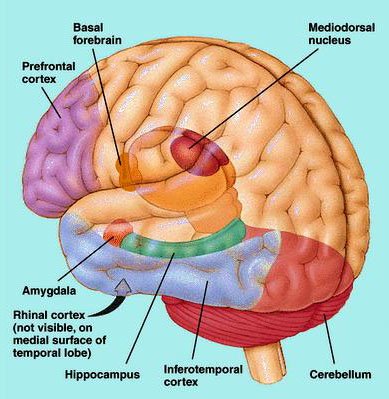


Therefore, it has been found that any damage to the latter structure can result in an inability to form new memories. Likewise, the hypothalamus plays a vital role in the regulation of body temperature, the adrenal glands and the pituitary, among many other activities, such as the regulation of hormones, which on many occasions notably mark our behavior and our social projection. The hippocampus will be in charge of sending these memories to the appropriate part of the cerebral hemisphere that will store them in the long term, so that they are later retrieved when necessary, for example, when we do an exam. This also allows us to remember and memorize the most transcendental experiences of our existence, those that will later influence the mode of action. The first is responsible for releasing all the resulting hormones by the body, while the second controls the mental processes related to memory. The hypothalamus and hippocampus are two of the most important. This network of neurons is complemented by other parts of the brain close to the limbic system. The hypothalamus and hippocampus are involved in creating emotions. Within all the complexity of the limbic system, we find certain very important structures involved with memory: the amygdala and the hippocampus. When we feel sad or worried, our ability to focus on an important task becomes more difficult, right? Well, the limbic system is to blame for it. In the same way, our emotions affect other fields of action of the human being, such as concentration or learning. On the other hand, everything related to the basic sensations of pleasure that occurs when eating or when we practice sex is also directed from this system. These structures are those that are fundamentally involved in the development of many of our emotions and motivations, particularly those related to survival such as fear, anger and emotions related to sexual behavior.įear, joy, sadness, anger … All the feelings that we experience in our day to day have a neurological basis in this network. It is a network of neurons located in the brain that directly affects human behavior, due to its great influence on moods.

The limbic system is made up of a set of brain structures that are considered very primitive in evolutionary terms, located in the upper part of the brain stem, below the cortex. But, is the term emotional brain totally correct? What are the components of the Limbic System today? Is its functioning so important? If you keep reading, you will find the answers to these questions! What’s the limbic system? The limbic system is known as the emotional brain. After all, they fulfill an adaptive function and nothing can be as important as understanding them in order to use them “intelligently” to our benefit. For example, when it comes to having sex or enjoying a delicious meal.Įmotions give us humanity, and although we often make the mistake of classifying them into negative and positive emotions, they are all necessary and valuable. The limbic system affects everything related to pleasure, in its most basic definition. The part of the brain that controls emotions is the limbic system. What Part Of The Brain Controls Emotions? In this article we are going to answer the question ‘’What Part Of The Brain Controls Emotions?’’ We will explain what emotions are and how the brain intervenes in their formation and interpretation.

The truth is that the brain is the organ that is behind all our emotions. Well then, it’s time to fix this terrible mistake. From time immemorial we have blamed the heart for our deepest feelings, holding the brain responsible for the most sensible and judicious decisions.


 0 kommentar(er)
0 kommentar(er)
